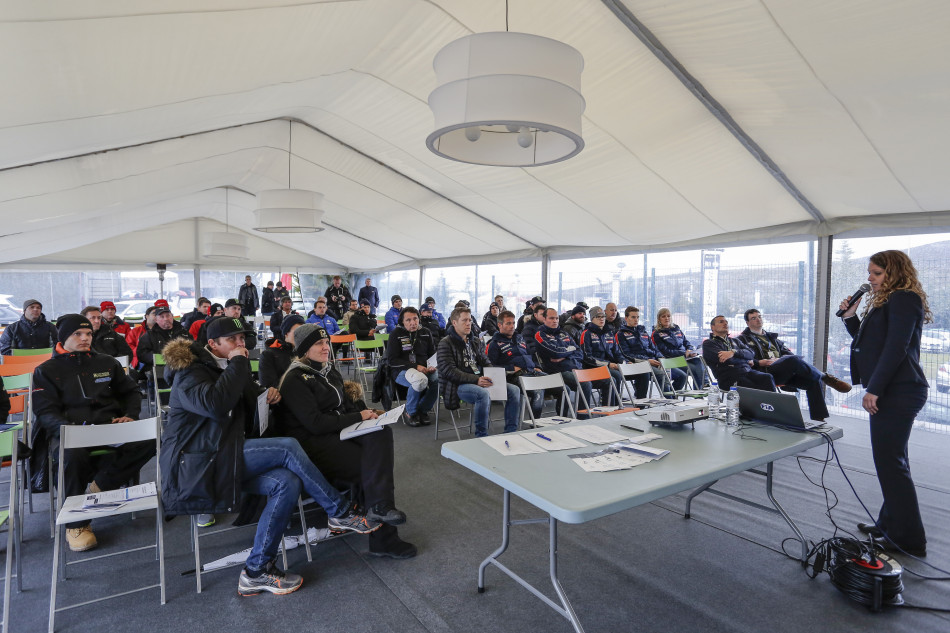FIA EDUCATING DRIVERS ON ANTI-DOPING REGULATIONS

Drivers competing in the 2016 FIA World Rallycross Championship were the latest to undergo the training session on Friday, ahead of the first round of the season, the World RX of Portugal in Montalegre.
All drivers entered in the 2016 championship were required to attend the session, where the FIA Medical department took the drivers through a number of important aspects to the sport’s anti-doping policy.
The main focus of the session was to make drivers aware of their responsibility to ensure compliance with the anti-doping code – it focused on three key areas:
- How athletes can make themselves aware of the Prohibited List of substances – including performance-enhancing and substances specific to motor sport banned due to safety reasons
- Protocols required for submitting Therapeutic Use Exemptions (TUE)
- Acceptable behaviour and responsibilities while undergoing testing
- Ensure athletes are aware of the potential punishment for violation of the code.
As a non-Olympic member of the International Olympic Committee (IOC), the FIA is a signatory to the World Anti-Doping Agency (WADA) Code. As a signatory to this code, the FIA must conduct education programmes for its athletes such as Friday’s session.
The session for the World RX drivers follows on from a similar session at the first round of the FIA World Touring Car Championship in Le Castellet earlier this month, as well as being included in mandatory training programmes for drivers in the FIA Formula 3 European Championship and a pilot training programme for drivers in the ADAC German Formula 4 Championship.
Sessions for drivers in the FIA’s other World Championships will continue throughout the year, before the Federation looks to begin monitoring its implementation at ASN (National) level.
Andreas Bakkerud, driver of Hoonigan Racing Division’s Ford Focus RS RX, believes the sessions are a timely reminder for motor sport athletes.
“It’s a very good reminder that there are big consequences if you don’t pay attention to what I am putting in my body,” said the Norwegian.
“It can be difficult to know what you can use and what you can’t use – there are so many rules, so many lists, and so many different names for things.
“In Norway, I know the names for the allowed and the banned substances – but in other countries they might be called something else.
“I have a good relationship with my ASN in Norway, which is very involved in anti-doping – I have my guy there that works with me to make sure I am ok with everything.”
The drivers will also complete the FIA’s Race True online programme, which provides interactive learning regarding banned substances, and the expected behaviour during anti-doping tests.

 Facebook
Facebook Twitter
Twitter






